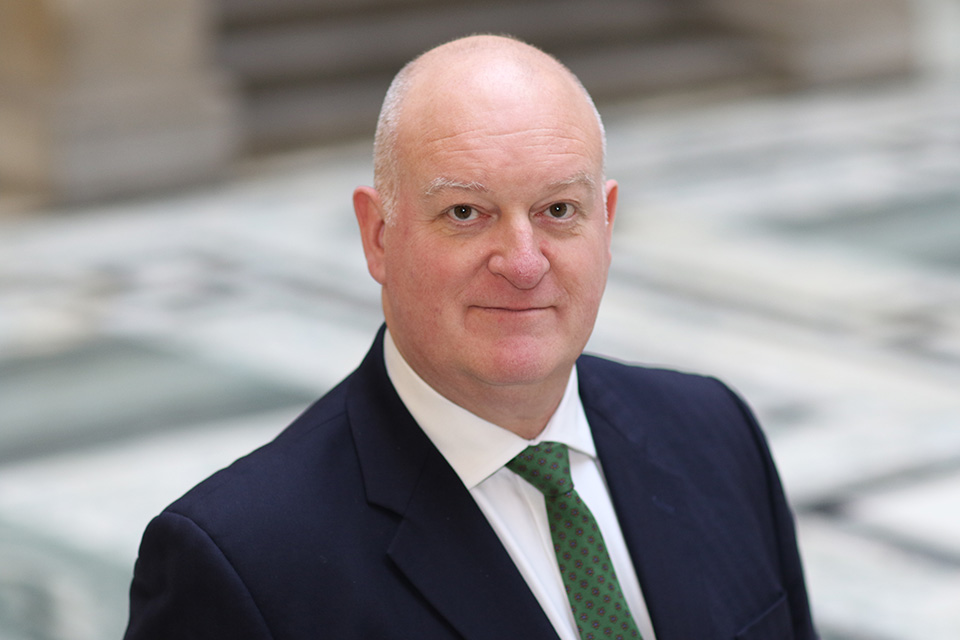Russia’s narrative of inevitable victory is contradicted by its military and economic failures: UK statement to the OSCE
Politico-Military Counsellor Ankur Narayan highlights that Russia’s claims of inevitable victory in Ukraine are undermined by minimal territorial gains, unsustainable casualties, and severe economic strain. The UK and its partners remain resolute in supporting Ukraine’s sovereignty and territorial integrity against Russia’s ongoing aggression.

Madam Chair, Russia’s victory in Ukraine is not inevitable.
Russia has repeatedly tried to persuade Ukraine’s supporters and the wider world that its victory in Ukraine is inevitable. Despite sustained aggression and significant investment of personnel and resources, Russia has made only marginal territorial gains since its full-scale invasion in February 2022. After nearly four years since its illegal invasion, Russia controls less than 20% of Ukrainian territory. This is up from the 7% it claimed to control before February 2022. Since the frontlines stabilised in November 2022, Russia has gained just 1.1% more territory, at the cost of over one million casualties.
Russia’s military advances remain slow and costly. Reported Russian advances in September and October were the smallest since April. It has taken over a year for Russia to advance 15 kilometres towards Pokrovsk, suffering nearly 100,000 casualties in doing so. The city’s infrastructure has been largely destroyed, offering little strategic value.
Russia’s losses are unsustainable. Over 320,000 casualties have been recorded in 2025 alone, and the Kremlin is increasingly reliant on inexperienced recruits. Reports indicate that many receive less than three weeks of training before being deployed. Desertions reportedly exceed 50,000, and coercive practices within the ranks are widespread.
Russia’s economy is also under strain. The IMF has revised its 2025 growth forecast down to 0.6%, from 4.3% in 2024. Military spending now exceeds $159 billion. That is over a third of the national budget. Tax revenues from oil and gas have declined 27% year-on-year, and Russia has already depleted over half of its liquid sovereign wealth fund since February 2022. Those around President Putin are admitting that the economy is in trouble. The Head of Sberbank, Herman Gref, warned that interest rates would have to be cut to 12% from their current 16.5% to “create hope” for an economic recovery. Alexander Shokhin, Head of the Russian Union of Industrialists and Entrepreneurs, said that “the cooling, or well managed soft landing, is neither very soft nor very well managed.”
Sanctions continue to have a significant impact. Russia has lost access to $450 billion in assets, and 80% of its banking system is under sanction. Import costs for strategic goods have risen by 122%, and domestic production of microchips remains unreliable. Chinese financial institutions are increasingly distancing themselves from Russian entities, further limiting Russia’s economic options.
The burden of war is increasingly falling on Russian citizens. Value Added Tax (VAT) has been raised from 20% to 22%, and social spending is facing real-term cuts. Food price inflation and new tax thresholds are placing additional pressure on households and small businesses.
Madam Chair, Russia’s military and economic trajectory does not support its narrative of inevitable victory. This is a war characterised by minimal territorial gains, at disproportionate cost in lives and livelihoods. Ukraine continues to resist with determination and capability. To that end, the UK - and Ukraine’s many other international partners - remain steadfast in our support for Ukraine’s sovereignty and territorial integrity.